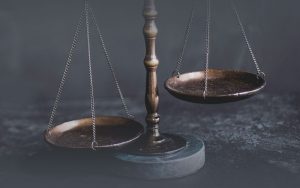The Covid-19 pandemic accelerated the shift towards a more digitally-enabled world. In this digital world, the meaning of property and assets has changed.
Until recently, there was no formal recognition of these assets as an individual’s property. This posed several challenges as to how these assets can be transitioned or passed on post death or incapacitation.
Most digital accounts do not permit a transfer of ownership. So, your family could potentially be found guilty of violating privacy laws if they attempt to access the online accounts, even though the login credentials may have been shared by the account holder because in most cases, the terms and conditions of the service provider prohibit sharing the login credentials.
Most state laws and directives that govern personal property and assets were enacted before email and social media and do not account for digital property. There was hence a need for a new set of legally acceptable guidelines.
RUFADAA for Digital Assets:
Law: IC 32-39-2 Revised Uniform Fiduciary Access to Digital Assets Act
Status: Effective March 23, 2016.
Description: This law authorizes a decedent’s personal representative or trustee to access and manage digital assets and electronic communications.
The Uniform Law Commission created the Revised Uniform Fiduciary Access to Digital Assets Act (RUFADAA) in 2015, which received widespread support.
In the year 2016, the legislature of Indiana passed the revised RUFADAA bill to smoothen the process for executors or attorneys to disclose the digital asset to its authorized recipients or fiduciaries under a legal framework, as directed by the user digital estate plan or will. This bill enables the user to manage digital assets along with their physical properties. It clearly specifies the authority of users in managing digital assets.
What makes RUFADAA different is that for the first time, property law recognizes the existence of digital property as a property right that can be managed, conserved, and, in certain instances, accessed by third parties, in much the same manner as other rights in real and tangible personal property.
The most useful aspect of RUFADAA is that it gives clear instructions for how a person’s digital assets are to be treated should a fiduciary seek access, which may include not only executors after death, but trustees, court-appointed guardians, and attorneys-in-fact.
The starting point is that online service providers can create an “online tool” that functions as a form of “digital power of attorney” to specify who has control and access to that specific site.
RUFADAA provides a clear legal framework for digital asset rights to be specified in traditional legal documents (e.g., Wills and powers of attorney). RUFADAA further clarifies that it’s only in the absence of an online tool or any legal documents that finally the service provider’s own Terms of Service will take effect.
References:
1. https://www.kitces.com/blog/rufadaa-digital-estate-planning-rights-three-tiers-online-tool-fiduciary/
2. https://www.ncsl.org/research/telecommunications-and-information-technology/access-to-digital-assets-of-decedents.aspx




